To provide the best experiences, we use technologies like cookies to store and/or access device information. Consenting to these technologies will allow us to process data such as browsing behaviour or unique IDs on this site. Not consenting or withdrawing consent, may adversely affect certain features and functions.
The technical storage or access is strictly necessary for the legitimate purpose of enabling the use of a specific service explicitly requested by the subscriber or user, or for the sole purpose of carrying out the transmission of a communication over an electronic communications network.
The technical storage or access is necessary for the legitimate purpose of storing preferences that are not requested by the subscriber or user.
The technical storage or access that is used exclusively for statistical purposes.
The technical storage or access that is used exclusively for anonymous statistical purposes. Without a subpoena, voluntary compliance on the part of your Internet Service Provider, or additional records from a third party, information stored or retrieved for this purpose alone cannot usually be used to identify you.
The technical storage or access is required to create user profiles to send advertising, or to track the user on a website or across several websites for similar marketing purposes.
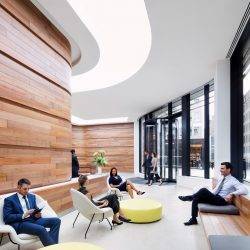 The Crown Estate has announced that it has been awarded WELL Certification at the Platinum Level for its head office at No 1 St James’s Market, London by the International WELL Building Institute. The Crown Estate earned the distinction based on seven categories of building performance—air, water, light, nourishment, fitness, comfort and mind—and achieved a Platinum level rating.
The Crown Estate has announced that it has been awarded WELL Certification at the Platinum Level for its head office at No 1 St James’s Market, London by the International WELL Building Institute. The Crown Estate earned the distinction based on seven categories of building performance—air, water, light, nourishment, fitness, comfort and mind—and achieved a Platinum level rating.




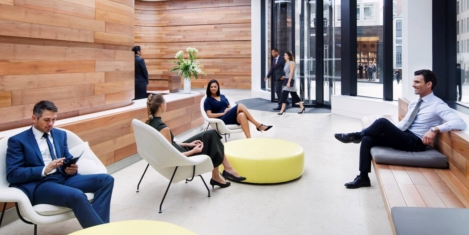
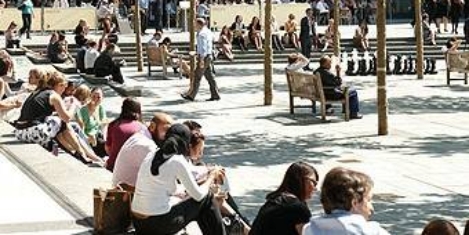
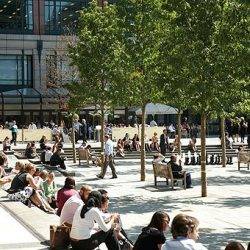

 Built environment organisations are calling for urgent action on issues such as consumption, innovation and infrastructure to prevent the UK slipping behind other nations on poverty, equality and the environment as a new report released today (3 July 2018) highlights the UK’s inadequate performance against the United Nations Sustainable Development Goals (SDGs), including those for the built environment. The report, Measuring up, from the UK Stakeholders for Sustainable Development (UKSSD), is the first comprehensive assessment of the UK’s performance against all 17 SDGs and highlights a significant danger that quality of life in the UK will worsen if action is not taken. Just some of the findings of the report include; that the UK is performing well (green) on only 24 percent of its targets; no industry, innovation and infrastructure targets have achieved a ‘good’ performance rating, with gaps in policy coverage and inadequate or deteriorating performance and large scale, sustained investment in replacing ageing infrastructure and creating additional resilient and low carbon infrastructure of all kinds is required.
Built environment organisations are calling for urgent action on issues such as consumption, innovation and infrastructure to prevent the UK slipping behind other nations on poverty, equality and the environment as a new report released today (3 July 2018) highlights the UK’s inadequate performance against the United Nations Sustainable Development Goals (SDGs), including those for the built environment. The report, Measuring up, from the UK Stakeholders for Sustainable Development (UKSSD), is the first comprehensive assessment of the UK’s performance against all 17 SDGs and highlights a significant danger that quality of life in the UK will worsen if action is not taken. Just some of the findings of the report include; that the UK is performing well (green) on only 24 percent of its targets; no industry, innovation and infrastructure targets have achieved a ‘good’ performance rating, with gaps in policy coverage and inadequate or deteriorating performance and large scale, sustained investment in replacing ageing infrastructure and creating additional resilient and low carbon infrastructure of all kinds is required.

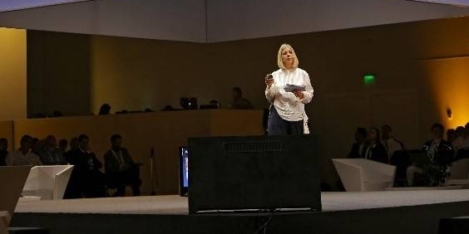






 It can be proven that a well implemented Occupational Health service can offer a good return on investment, finds a new report. A white paper, produced by the Society of Occupational Medicine (SOM), the International SOS Foundation and KU Leuven University,
It can be proven that a well implemented Occupational Health service can offer a good return on investment, finds a new report. A white paper, produced by the Society of Occupational Medicine (SOM), the International SOS Foundation and KU Leuven University, 














July 11, 2018
A beauty industry veteran makes the case for corporate wellness
by Leena Jain • Comment, Wellbeing, Workplace design
(more…)